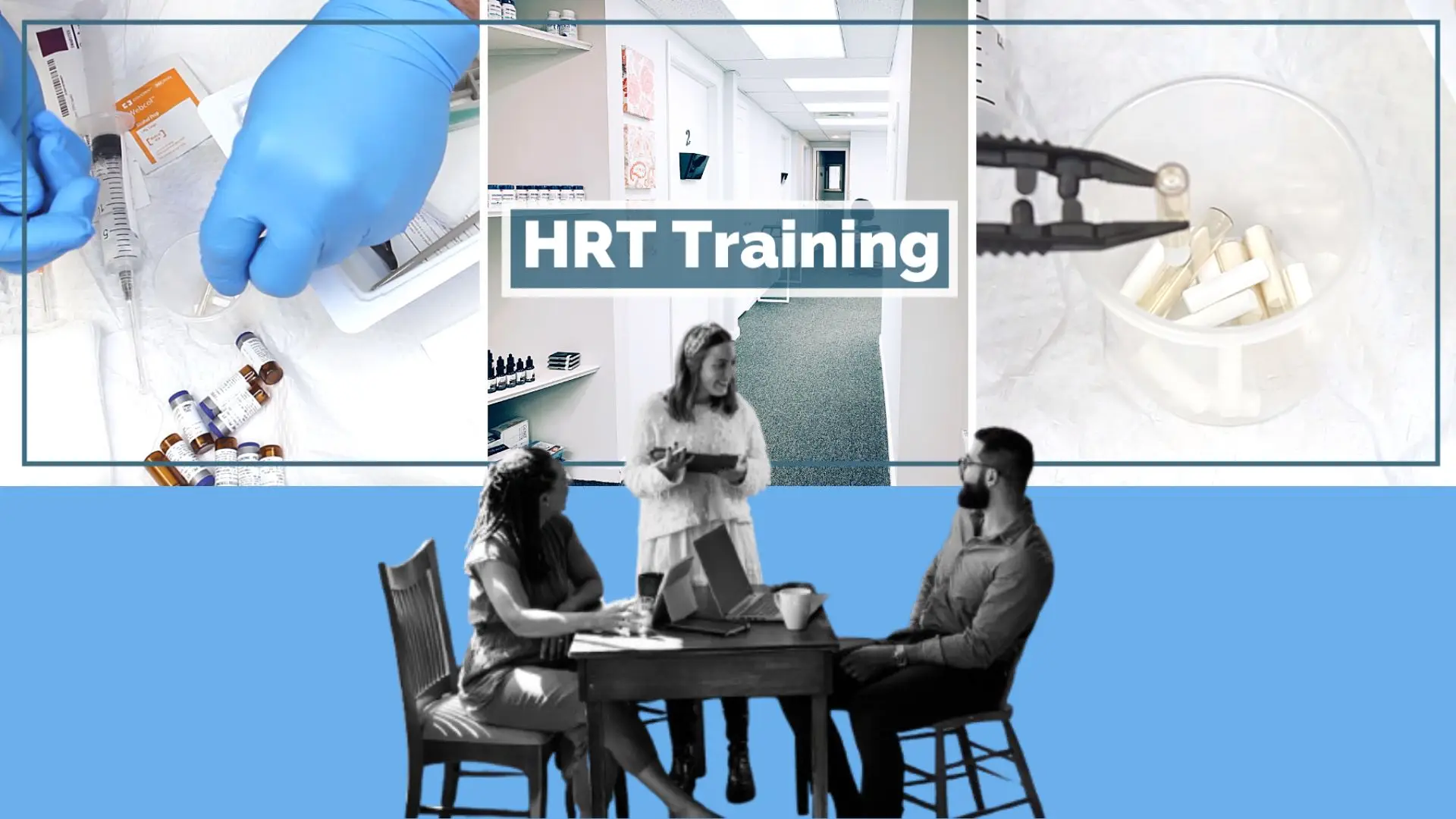

Start Your Journey: Hormone Replacement Therapy Training That Works
If you’ve been practicing medicine for any amount of time, you’ve probably noticed it—more and more patients are coming in with issues like brain fog, fatigue, stubborn weight gain, mood swings, and low libido. And despite normal labs or healthy lifestyle choices, they’re still not feeling well.
As a healthcare provider, this can be frustrating. You want to help, but the usual go-to treatments just aren’t cutting it. That’s when many of us start digging deeper—and often, we find hormone imbalances at the root.
This is where hormone replacement therapy training comes into play.
Why HRT Is Becoming a Must-Know Area of Care
For years, hormone therapy was seen as a niche. Maybe something you referred out. But the truth is, hormones touch everything—energy, metabolism, sleep, mood, even gut health. When they’re out of balance, patients feel it. And when you know how to treat it safely? You become the provider they trust.
Taking a well-rounded HRT course can completely shift your clinical approach. You’ll start spotting patterns you may have missed before. More importantly, you’ll be equipped to treat the actual cause—not just manage symptoms.
What a Good HRT Course Should Teach You (Without the Fluff)
There are a lot of training programs out there. Some are helpful. Some… not so much. So how do you know if a course is worth your time and money?
Here’s what to look for:
- Real-World Application
It’s not enough to just memorize hormone names. A solid hormone optimization course will walk you through actual cases. What labs to order, how to read them, how to dose hormones (especially bioidenticals), how to follow up—it should feel like training you can take right into clinic the next day.
- Covers More Than Just Women’s Health
Yes, menopause is important. But men have hormone issues, too. The best hormone therapy certification courses teach you how to work with testosterone therapy, adrenal function, thyroid support, and yes, perimenopause and menopause too.
- Flexible and Easy to Access
Let’s be honest, most of us don’t have time to fly across the country for a seminar. A quality online hormone therapy course makes it easy to learn at your own pace—whether that’s nights after work or weekends over coffee.
Created by People Actually in Practice
This one matters. The best courses aren’t written by marketing teams—they’re led by clinicians who are treating real patients every day. You can feel the difference when the advice is based on lived experience, not just theory.
Who Benefits from Hormone Replacement Therapy Training?
You don’t have to be a hormone expert to start. In fact, most providers who take an HRT course for nurse practitioners, PAs, MDs, or other clinicians come in with basic knowledge—and leave with a new lens for looking at common symptoms.
This training is especially useful if you’re in:
- Primary care
- Family or internal medicine
- Women’s health
- Men’s health
- Functional or integrative medicine
- Preventive or concierge medicine
If you’re seeing patients who are doing “all the right things” and still feel off, HRT might be the missing link.
Choosing a Hormone Therapy Certification That Actually Helps You Grow
Not every certification is going to give you the tools you need. Some are heavy on lectures but light on practice. Others feel more like a sales pitch than education. So before you sign up, ask:
- Does the course show you how to interpret labs and make decisions?
- Will you learn how to individualize care for each patient?
- Are you getting practical tools—like dosing guides, checklists, and protocols?
- Can you reach out with questions or connect with other learners?
If the answer’s yes, you’re likely on the right track.
What Happens After the Training?
Taking a good hormone replacement therapy training program doesn’t just teach you a new skill—it gives you a new perspective. You start to listen differently. You ask better questions. You recognize subtle signs you used to overlook.
And when you start helping patients feel better after years of being told “everything looks normal”? That’s a powerful shift—for them, and for you.
Final Thoughts: A New Era of Healthcare Starts With You
Medicine is changing. Patients are more informed. They’re looking for providers who don’t just prescribe, but actually listen and look deeper.
By learning hormone therapy, you can become that kind of provider.
So whether you’re thinking of opening your own practice, adding services to your current one, or just trying to be a better clinician, now’s a great time to invest in yourself. There’s no need to rush—start where you are. But do start.
Take an HRT course. Get the hormone therapy certification. Join the growing number of providers who are helping people feel like themselves again—one hormone at a time.
Related Posts
© 2025 Invastor. All Rights Reserved

User Comments